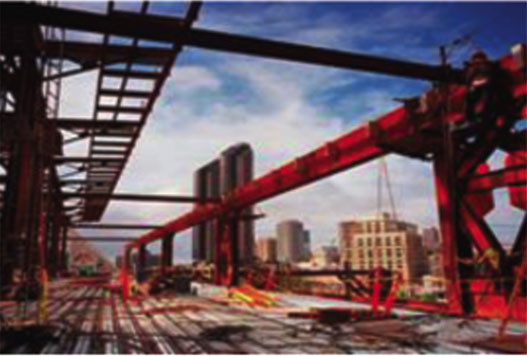
ACCORDING to Deloitte’s recent report on African construction trends, a number of 51 projects were identified in 2014 compared to 93 projects noted in the preceding year.
“Our view is that while there has been a dip in current activity, there are a large number of significant projects in the planning phase that have not yet reached financial close and are thus not yet reflecting in the statistics of projects under construction,” read the report.
While the total value of the projects in the region for 2014 was recorded at 60.7 billion US dollars, transport projects rose by 17 per cent. Nonetheless, energy and power projects remained unchanged at 37 per cent.
According to the report, East Africa’s largest economy, Kenya contributed the ‘largest bulk’ in the region’s capital infrastructure followed by Uganda, Ethiopia and Tanzania. On the other hand Rwanda, East Africa’s fastest growing economy and the number one nation in the region in terms of ease of doing business, recorded the least number of infrastructure projects.
The transport sector dominated the East African mix, largely driven by the Standard Guage Railway project as well as the Lamu Port Southern Sudan-Ethiopia Transport (Lapsset) project which includes a new railway line, an oil pipeline, an airport and a port.
“While there seems to have been a dip in current activity, there are a large number of significant projects in the planning phase that have not yet reached financial close and are thus not yet reflecting in the statistics of projects under construction,” Mark Smith, the head of infrastructure & capital projects at Deloitte East Africa said in a statement.
Meanwhile, Deloitte termed Kenya’s ambitious plans to increase its national power output to 5,000 megawatts by 2016 in order to spur industrial growth as a positive move as it has not only attracted investors but will drive Kenya’s economy.
“On a more positive note, Kenya commissioned the largest geothermal plant in the world in 2014 and Ethiopia, too, has an exciting Power sector story developing which includes a large hydro power plant, as well as a gas power plant that aims to add 12 000MW to the national power grid,” Deloitte said.



